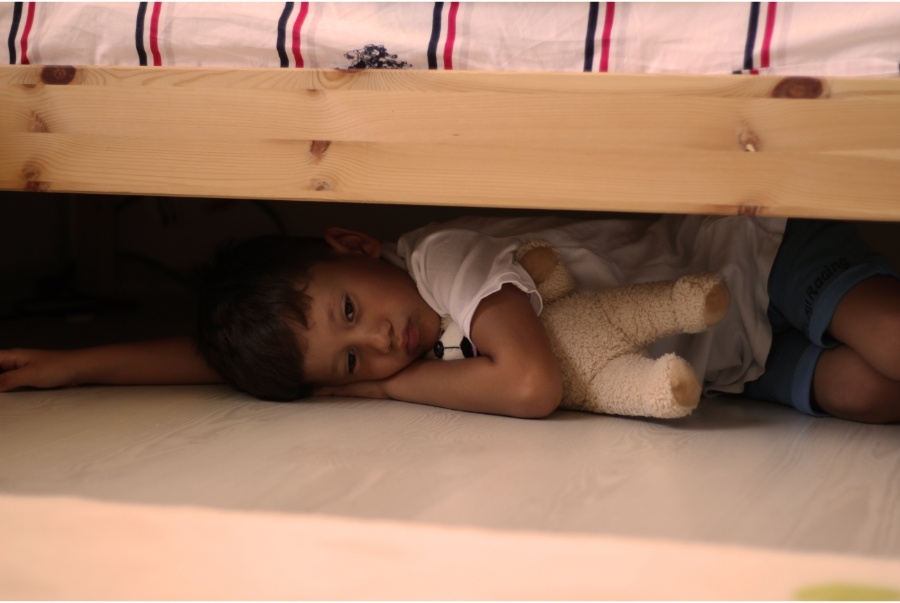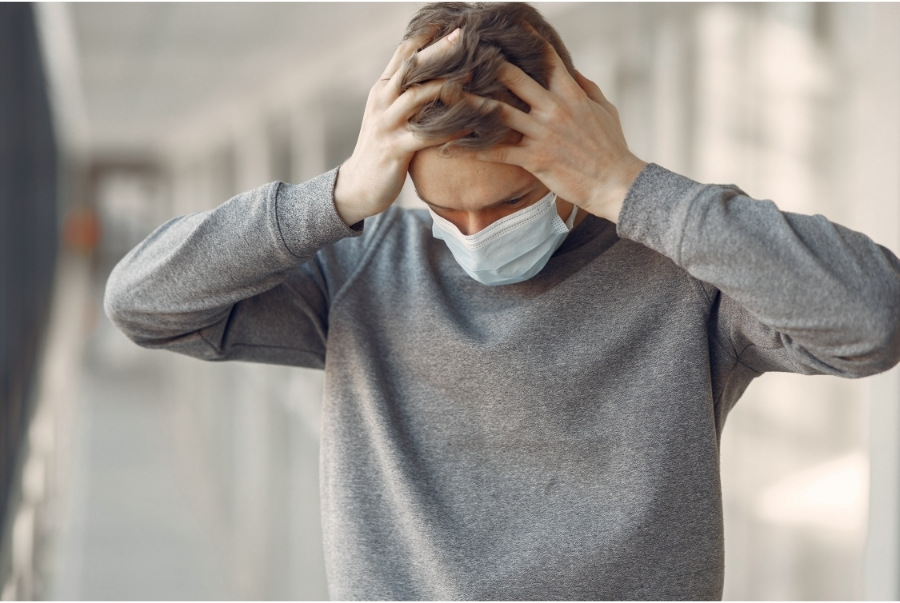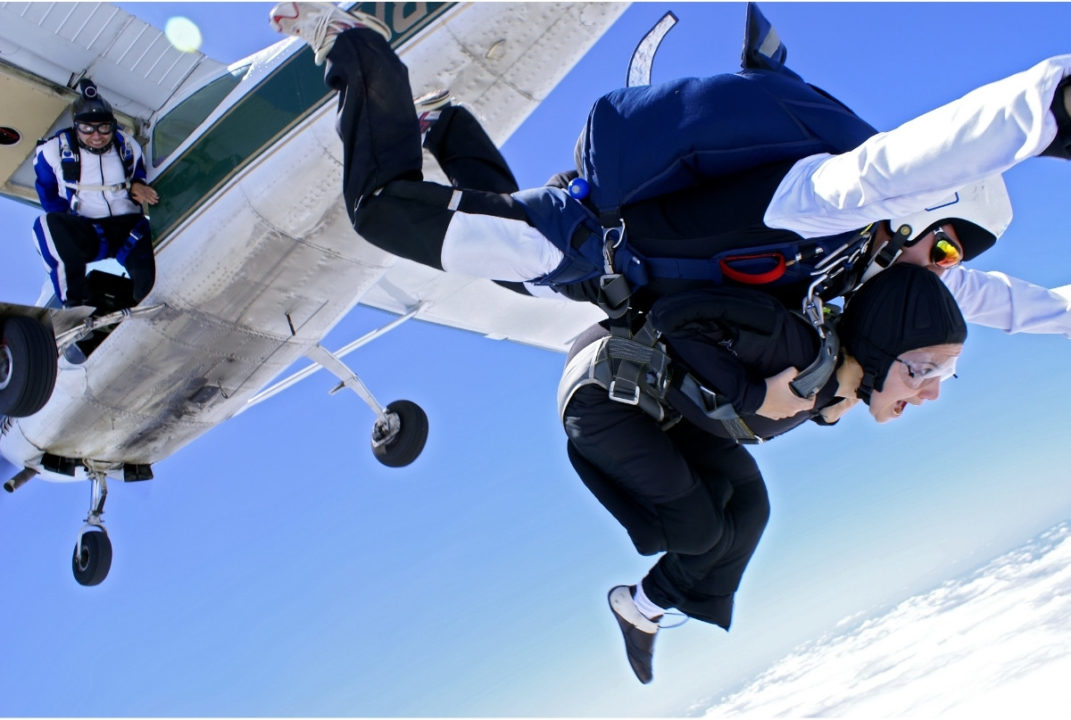Fear took over when I boarded a flight for the first time in two years. My heart palpitated wildly, my thoughts raced, my mouth went dry. Why? The dread that at any single moment, an invisible bug could attack me. The thought of catching COVID led to a more vigorous use of the alcohol wipes and covering up with two masks. As wild thoughts whirred through my mind, the fear escalated to almost irrational levels.
Annie, a marketing manager, says that fear of losing her job is a daily emotion: “If I don’t have a job, I won’t be able to get a salary and then I won’t be able to pay for rent and other expenses. The fear leads to worries, that spirals into other things linked to my job and salary, bringing about insecurities. Where will I live if I have no job? I will be helpless and will need to ask for help. What will people think? I always have this constant fear of being fired. Which means I can’t afford to screw up, no matter how much I am being bullied or overworked.”
What is fear, actually?
Many of us live in a constant state of fear. It may seem like an abnormal emotion; however, scientists explain that fear is actually the body’s defense mechanism. Our senses are on alert to danger, and fear keeps us safe. It is natural to experience fear, in fact, a lack of fear is considered a possible sign of brain damage.
Fear makes a person feel trapped, and blocks their ability to seek other opportunities. Failure is also linked to fear of judgement.
The different kinds of fears

Some fears are instinctive. Pain is a kind of fear that is related to survival. Some fears are a result of trauma. A car accident, for example, may cause anxiety to get back behind the wheel. Annie says, “I was always afraid about getting hurt and being in physical pain. And therefore, scared of doctors and hospitals.”

Other fears are developed over time. In childhood, we are taught to fear certain people, places, or situations. Another fear is the kind that is not risky to our bodies, and yet affects us deeply, is public speaking. It is recognized as the number one cause of fear.
Other fears are about relationships. There is a fear of losing respect when one fails at keeping a friendship or a marriage. Fear of being honest in a relationship has become common. Some relationships are not founded on love, but fear.
There is fear of death, and death of loved ones, which is the hardest one to deal with. The fear exists in the knowledge that life is terminal. It is a reality of our existence.
What happens to the body when we experience fear?

Research shows that the amygdala, the primal part of our brain, gets overworked when we are scared. There is a release of stress hormones, creating a fright, freeze, fight or flight response. In that frame of mind, we function on instinct, we physically feel overwhelmed, and our bodies react as if we are about to be attacked by a tiger.
The power of fear is so strong that many of our life’s choices and decisions come from a place of fear. Very often our reasoning is related to other people’s opinions. We worry about what people will think or say of our behaviour.
Fear tends to push us to ruminate. Over time, a sense of helplessness develops leading to bouts of depression. Inability to deal with the fear puts a tremendous amount of daily stress on both body and mind. Many people live in this self-created barricade of fear.
How to effectively face your fears
Let’s face it, we want to completely eliminate fear. Fear suffocates our lives. To be able to have that sense of ease within and without, we need to learn to deal with fear with our rational brain. The way to do this is to not fall into the trap of ruminating in fear. Ask yourself, ‘If this fear did not exist, what would I do differently?’ Just the thought of having no fear creates a sense of hope. Many of our fears are self-created by imagining worst case scenarios. They are a mental picture we paint and often not a reality. Confronting a fear means finding the courage to realise the truth of the situation. Facing reality, and realizing how the fear overwhelms us, is the first step in dealing with it.
Many people are too comfortable living with fear. It keeps us within a comfort zone, and limits us from taking risks or learning a new activity. If we think that we can live with fear, we are wrong. Later in life, regrets pile up, and our self-esteem gets affected. If we are unhappy with our own behaviour to face fears, we feel like we are not good enough. Deep down, we know that feeling like a coward is not a healthy way to lead a life. The good part of our ability to rationalize is that we can confront our fears and raise our self-respect and self-worth.

While on the flight, when I rationalized, and questioned my stress, the fear lost its edge, and I could relax. There was nothing to fear, I had had my jabs, I was careful and took all precautions. I had to accept that was the reality of my situation. I have no influence over externals. Often, fear takes over when we think we can control our environment and people. We have to accept that we can only do so much from within our ability to control our own attitudes and actions.
The choice to be fearless comes from our mindset. At times there is fear that has no clear cause. This is a persistent fear which is also referred to being worried about something but not sure why, or a sense of uneasiness within. This feeling is considered a disorder if it is constant and interferes with basic life activities like sleep and work.
No doubt, having a healthy sense of fear helps us understand situations that are risky or unsafe. The way we manage fear is key to not let it overpower us.
The irony is that the fear of a wasted purposeless life, not achieving one’s dreams or aspirations, can spark a drive to create a more fulfilling life.
More writing from Shobha Nihalani ⤵️

Shobha Nihalani is a multi-genre author, ghost-writer, and mindset coach. She has been writing for over 25 years. Her recent book on self-esteem – Reboot, Reflect, Revive: Self-Esteem in a Selfie World – has become popular and is recognised for raising awareness on self-esteem.
Shobha believes that the way we communicate with ourselves, and others, has the power to impact our lives. Her expertise as a writing consultant and writer’s coach has given her the opportunity to guide people to acknowledge their own amazing potential to be unique, creative, and resilient in achieving their goals.
Learn more about Shobha Nihalani at www.shobhanihalani.com or contact her at shobhanovels@gmail.com.
Disclaimer: The opinions expressed in this publication are those of the authors and do not necessarily represent the views of The HK HUB.
Header image credits: Mauricio Graiki via Canva




